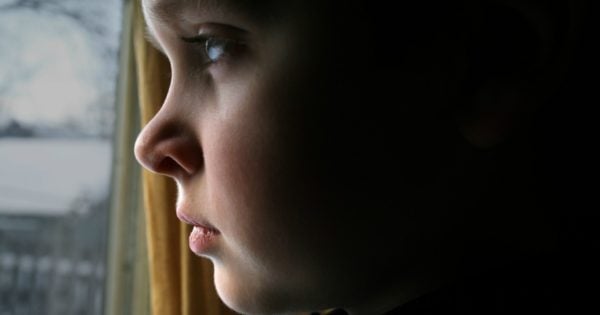
Last week, I read the headline “Baby Dead After Parents Left Him in Swing For Days” and tweeted: “I’m going to tell myself that this story is fiction because otherwise I can’t cope thinking of what that infant endured.”
I'm going to tell myself that this story is fiction because otherwise I can't cope thinking of what that infant endured
— Nama Winston (@Nama_Winston) October 27, 2017
This week I read, “Couple forced girl to brush teeth with cat poo“. I knew what I was in for, because the details of child abuse cases are always horrifying, and usually involve neglect, physical and/or sexual abuse, exploitation, serious injury or death. In short – torture. The kids are usually tortured to death.
I don’t do it enthusiastically. I see a headline like, “This mother killed her four year old by forcing her to repeatedly ride a motorbike“, or “The five-year-old boy who died living in squalor“, and I’m not sure I want to know what happened. But I force myself to read what’s been written, and I follow up months later to see if new information has been released.
The way I see it, these children never had a choice like I do; their stories were thrust upon them.
Some of these innocent angels are dead because of how they were treated. So, surely, I can be strong enough to read the general details (because we certainly do not get the most graphic ones) that have been published about what happened to them. Surely, I can bear to watch that CCTV footage of a father pouring water on his baby’s head and hitting his toddler son’s head at a café, because that thirty seconds demonstrates the smallest fraction of what those children endure every day.
Listen: Would you ban a man from babysitting your children? (Post continues…)
So I watch and I read and I cry. For their fear, injuries, pain, confusion, and terror. They must have witnessed things that many adults are never forced to see; violence, verbal abuse, drug and alcohol abuse; directed not only towards them but also to their siblings or one of their parents. Some of them died as a result of their treatment. Others are in specialised care that will give them a small chance to recover from their trauma.
I want to rescue each child I learn about and give them everything they never had. Food. Medical attention. Love. Safety. But I can’t do that. So at the very least, when I read of their suffering, I can acknowledge them in my heart.
I will not turn my face away and say: “It’s too hard to see or hear about what happened to you. I’m not brave enough.”
What does that achieve, anyway? Ignoring child abuse stories is a dangerous thing to do. Pretending it doesn’t happen just perpetuates the cycle, because, in many instances, these crimes are committed in the context of generational abuse.
For example, the case of six-year-old Keisha Weippeart. Her mother, Kristi Abrahams, had the most horrific and violent childhood. She witnessed her alcoholic father beat her alcoholic mother for years until the woman developed a seizure disorder due to the brain injury. Kristi then, at age 10, witnessed her mother die from one of those seizures.
Tiny Keisha never stood a chance. And neither did Kristi, who simply did not have the inner and physical resources it takes to not repeat the mistakes her parents made. No constant role model. No financial resources. No education. No support.
Many child abuse perpetrators are in the same position. It’s not an excuse, but it provides context. And if we understand that context, we can try to do something about it.

In many cases, concerned adults had reported the neglect and abuse, countless times. Some of the children were removed and unintentionally put into abusive foster homes, or spent too little time in loving foster homes before being returned. In general, the relevant authorities did the best they could with what they had. But obviously, it wasn't enough to make a difference.
A common finding in most stories is that the authorities, such as the police and family services, need significantly broader powers and funding to intervene, represent children and to support families. There is a dire requirement for more caseworkers, and extensive funding, especially for emergencies. Processes must be improved to find the best foster carers possible. And parents need better access to family education and support networks.
It's horrific that in Australia in 2017, children are dying and their futures are being ruined from the prioritisation of resources away from where they're desperately needed most. Let's arm as many people as possible with the tools to honour every child's right to live an abuse-free life.
And promise those who are already victims that they're not forgotten.
What happened to them, matters to us.

EXTRA: Mia Interviews Jackie O About The Addiction That Almost Ended Her
Mamamia Out Loud
Top Comments
There needs to be way more facilities for drug and alcohol rehab.
OK, you watch it like we watch the aftermath of a car wreck: it's so horrific that we can't look away. It's all well and good to say you do so because it means you're not turning a blind eye to the plight of these poor kids, but how does that translate into action? Unless it leads to something that actually helps, all you are is a voyeur. One with absolutely good intentions and genuine concerns, but ultimately, just bearing witness is no help to the cause.